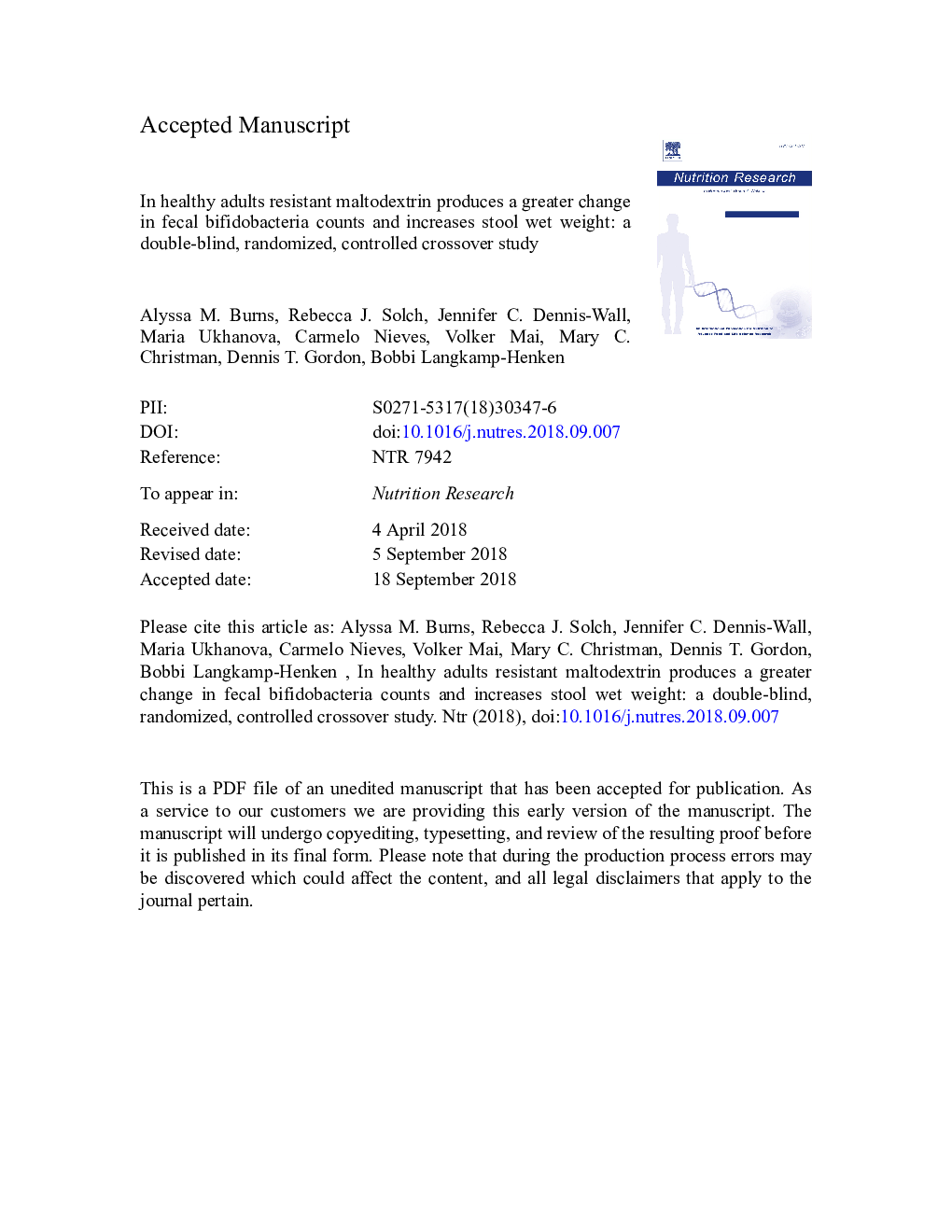| Article ID | Journal | Published Year | Pages | File Type |
|---|---|---|---|---|
| 11015235 | Nutrition Research | 2018 | 43 Pages |
Abstract
Dietary fiber stimulates the growth of potentially beneficial bacteria (eg, bifidobacteria), yet most Americans do not meet daily fiber recommendations. Resistant maltodextrin (RMD), a fermentable functional fiber, may help individuals meet total fiber recommendations and potentially increase bifidobacteria. It was hypothesized that fecal bifidobacteria counts/ng fecal DNA would increase after adding 25 g RMD to inadequate fiber diets of healthy adults. In this double-blind, controlled crossover study, 51 participants (26.3 ± 6.8 years, mean ± SD) were randomized to consume 0, 15, and 25 g RMD daily for 3 weeks followed by a 2-week washout. Participants collected all stools for 2 days at weeks 0 and 3 of each intervention for stool wet weight (WW) measurements and fecal bifidobacteria counts. Weekly 24-hour dietary recalls assessed total fiber intake. Only 25 g RMD resulted in a change (final minus baseline) in bifidobacteria that was significant compared with 0 g (0.17 ± 0.09 vs â0.17 ± 0.09 log10[counts], respectively, mean ± SEM, P = .008). Stool WW increased only with 25 g (150 ± 11 vs baseline 121±11 g/d; P = .011). Mean daily total fiber intake (including RMD) was significantly higher (both P< .001) with 15 g (17.8 ± 0.6 g/1000 kcal or 4184 kJ) and 25 g (25.3 ± 1.1 g/1000 kcal) compared with 0 g RMD (8.4±0.4 g/1000 kcal). Mean daily total fiber intakes exceeded recommendations (14 g/1000 kcal) with 15 and 25 g of RMD, and 25 g RMD increased fecal bifidobacteria counts and stool WW, suggesting health benefits from increasing total fiber intake.
Keywords
Related Topics
Life Sciences
Biochemistry, Genetics and Molecular Biology
Endocrinology
Authors
Alyssa M. Burns, Rebecca J. Solch, Jennifer C. Dennis-Wall, Maria Ukhanova, Carmelo Jr., Volker Mai, Mary C. Christman, Dennis T. Gordon, Bobbi Langkamp-Henken,
